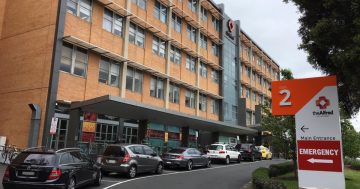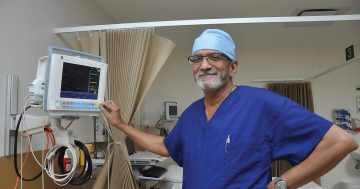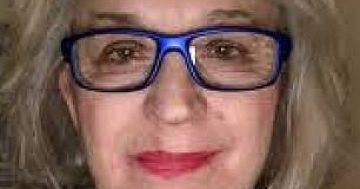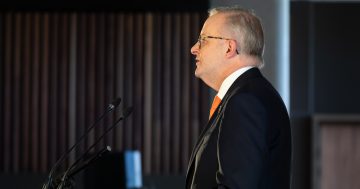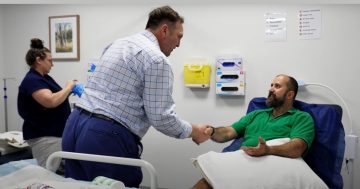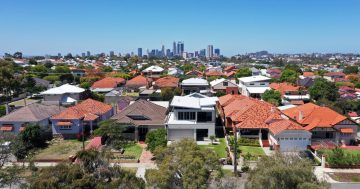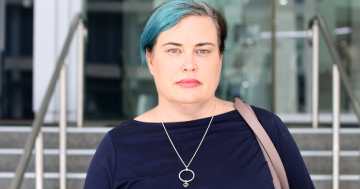Nicolas Perpitch* says buy now, pay later schemes are being trialled for patients at three Australian hospitals, which has sparked warnings from financial counsellors.
 Elective surgery patients will have the option to delay payments for procedures worth tens of thousands of dollars, as the buy now, pay later industry enters the private health system for the first time in Australia.
Elective surgery patients will have the option to delay payments for procedures worth tens of thousands of dollars, as the buy now, pay later industry enters the private health system for the first time in Australia.
St John of God Health Care’s hospitals at Murdoch and Mt Lawley in Perth and St John of God Berwick Hospital in south-east Melbourne are starting a six-month trial with credit lender Openpay.
They will allow patients who have dropped their private health insurance and are self-funding their health care to set up payment plans for up to 12 months for knee, hip and other elective surgery operations.
The Financial Counsellors Association warned buy now, pay later companies such as Openpay were not regulated and people could quickly find themselves in financial trouble.
But Openpay sought to reassure consumers it was a responsible lender and had a series of checks in place to prevent people from overextending themselves.
Loan may not cover full surgery cost
Under the deal, patients will initially be able to borrow up to $10,000 during the trial period.
That may cover only part of their elective surgery. A hip replacement can cost more than $30,000.
“To be very clear, we’ve got some very strict guidelines in place,” Openpay chief commercial officer Dion Appel told ABC Radio Perth.
“It’s very important to understand we’ve excluded any cosmetic surgery procedures from this particular function.
“So it really is elective surgery for things people actually need.”
Patients download an app and apply to sign up, provided they are over 18 years of age and have a debit or credit card.
They can request an increase to the $10,000 limit through the app.
“Ultimately that will determine how much you are able to spend to manage your treatment,” Mr Appel said.
Payments need to be made every two weeks and a late fee of $7.50 applies.
Warning of hidden fees, inflated prices
Mr Appel said Openpay was an accredited member of the buy now, pay later code of conduct and it would work with customers having trouble making payments.
But that did not ease the concerns of the traditional financial industry.
Partnerships like the one between Openpay and St John of God are not covered by the National Consumer Credit Protection Act.
Financial Counsellors Association of WA executive officer Melanie Every said that meant they did not have the same obligations as banks.
“What that means for people is if you do get into trouble, if you do have problems with paying, that they don’t have the same obligations around hardship policies and procedures you would find the banks having,” Ms Every said.
She urged consumers to properly inform themselves, seek financial advice about all the available options, and be aware there could be hidden fees.
“What we’re seeing is people ending up with several of these buy now, pay laters and they quickly add up,” Ms Every said.
“People can lose track of their spending and problems come when people start to default on repayment of these.
“So we just urge consumers to make sure they’re well informed.”
An Australian Securities and Investments Commission (ASIC) report from November 2020 indicated 21 per cent of buy now, pay later users who were surveyed missed a payment in the previous 12 months.
It found revenue from missed payment fees for all the buy now, pay later providers it had reviewed amounted to $43 million in 2018-19.
That was 38 per cent more than the previous year, as the number of buy, now pay later transactions increased from 16.8 million to 32.0 million over the same period.
ASIC said some consumers who used buy, now pay later arrangements were experiencing financial hardship, “such as cutting back on or going without essentials” like meals, or they were taking out additional loans.
“There is also a risk that consumers may be paying inflated prices for some goods and services when using a buy now, pay later arrangement,” the watchdog said.
*Nicolas Perpitch has worked as a broadcast and print journalist at The Australian, SBS and AAP in Perth and Sydney. He joined ABC News in Perth in 2014.
This article first appeared at abc.net.au.


